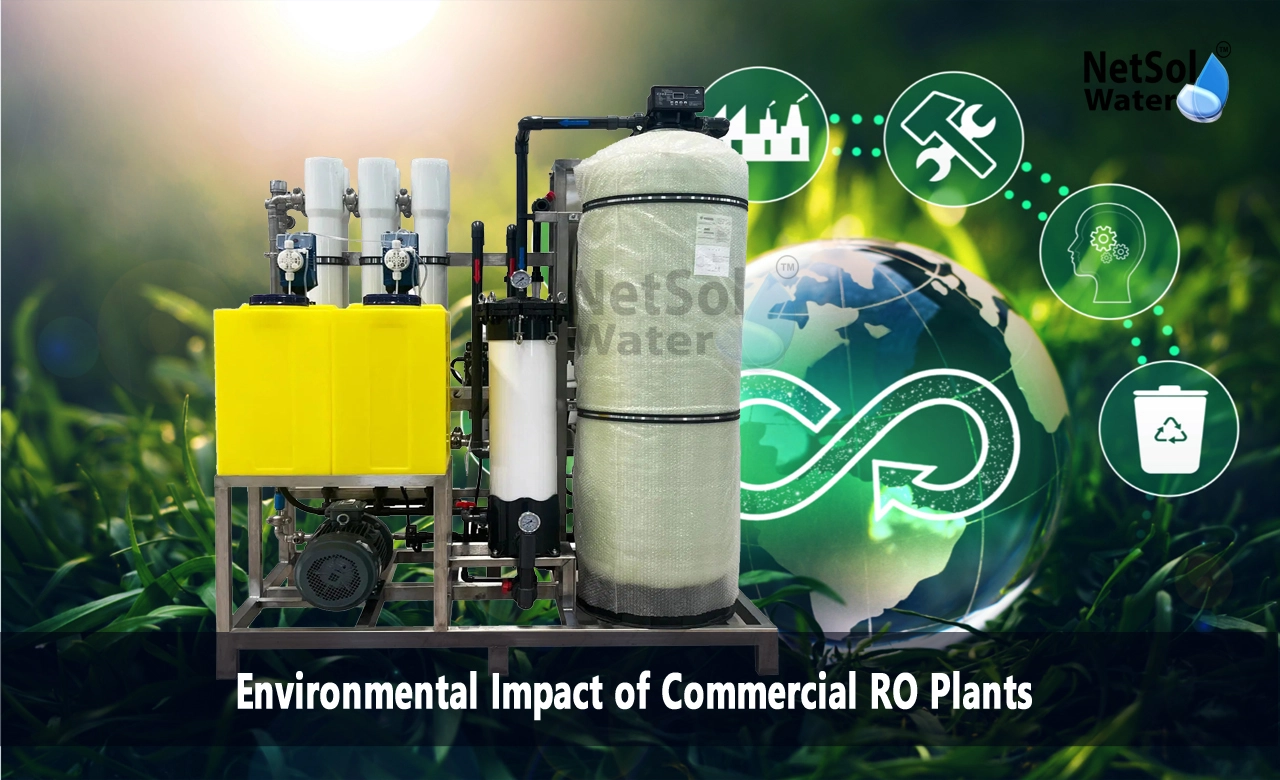What are the Environmental Impact of Commercial RO Plants?
As water scarcity concerns escalate globally, commercial RO desalination has become a critical technology for producing potable water from brackish and seawater sources. However, the processes involved in operating large-scale RO plants consume significant energy and chemicals while generating waste streams that can harm local environments.
We will examine the key environmental impacts associated with commercial RO plant facilities and strategies to mitigate them in pursuit of sustainability goals.
Energy Footprint
RO desalination is an energy-intensive process due to the high hydraulic pressures required to drive saline feedwater through semi-permeable membranes. Depending on the feedwater salinity, RO systems can consume 3-10 kWh of electricity per cubic meter of freshwater produced. This substantial energy demand translates into greenhouse gas emissions at the power plant, which supplies the electricity unless renewable sources are utilised. Adopting energy recovery devices (ERDs) that transfer pressure energy from concentrate to feed streams enhances efficiency by 30-40%, lowering the carbon footprint.
Concentrate Management
The concentrated brine rejected by RO membranes is typically discharged back into the source water body, like the ocean. This hypersaline discharge laden with other contaminants can potentially damage ecosystems in the mixing zone through increases in salinity levels and water toxicity. Careful brine dispersion modelling, outfall designs, and monitoring are essential for minimising impacts. Implementing innovative brine management approaches like evaporation ponds, deep well injection, and emerging technologies like membrane distillation minimises brine disposal volumes and coastal damages.
Chemical Usage
Commercial RO plants frequently dose the feedwater stream with chemicals like coagulants, antiscalants, biocides, and acid/caustic for membrane cleaning and preservations. These chemicals raise environmental concerns through their manufacturing impacts and potential discharge into source waters during concentrate disposal. Sustainable strategies include employing green chemicals, adopting physical pretreatment methods, and maximising chemical recovery/recycling within the plant. Improved membrane cleaning procedures and optimised dosing minimise chemical usage.
Environmental Footprint
The manufacturing processes to produce RO membranes and major plant components like pressure vessels involve resource extraction, industrial emissions, and waste generation, creating embodied environmental impacts upstream of plant operations. Modular RO plant designs optimised for specific capacity alongside high membrane recovery rates reduce material demands. Improved recycling and end-of-life management plans for decommissioned membranes and infrastructure lowers environmental burdens.
Ecological Disruptions
Constructing large RO facilities by the coast or offshore impoundment areas disturbs local habitats through noise, lighting, and ecosystem fragmentation. Intake pipes drawing in seawater can entrain marine organisms, while concentrated brine discharges alter the ambient salinity and water chemistry. Adopting low-impact designs, beach-well intake systems instead of open intakes, and restoring surrounding landscapes post-construction minimises ecological damage. Advanced outfall designs that promote brine mixing mitigate impacts.
Conclusion
While providing a vital source of freshwater to arid regions, commercial reverse osmosis desalination plants carry environmental tradeoffs related to energy use, chemical discharges, waste management and local ecological disruptions. However, emerging innovations in high-efficiency RO system design, renewable energy couplings, and advanced pretreatment/intake/outfall technologies continuously enhance the environmental profile of these facilities. Ultimately, taking a holistic sustainability approach through rigorous impact assessments, mitigation strategies, and environmental management systems paves the way for minimising the environmental footprint of meeting global freshwater demands via commercial RO desalination.
To explore customised commercial RO plants, Industrial RO plants, ETP or STP solutions for your needs in your areas and nearby regions, contact Netsol Water at:
Phone: +91-965-060-8473, Email: enquiry@netsolwater.com



